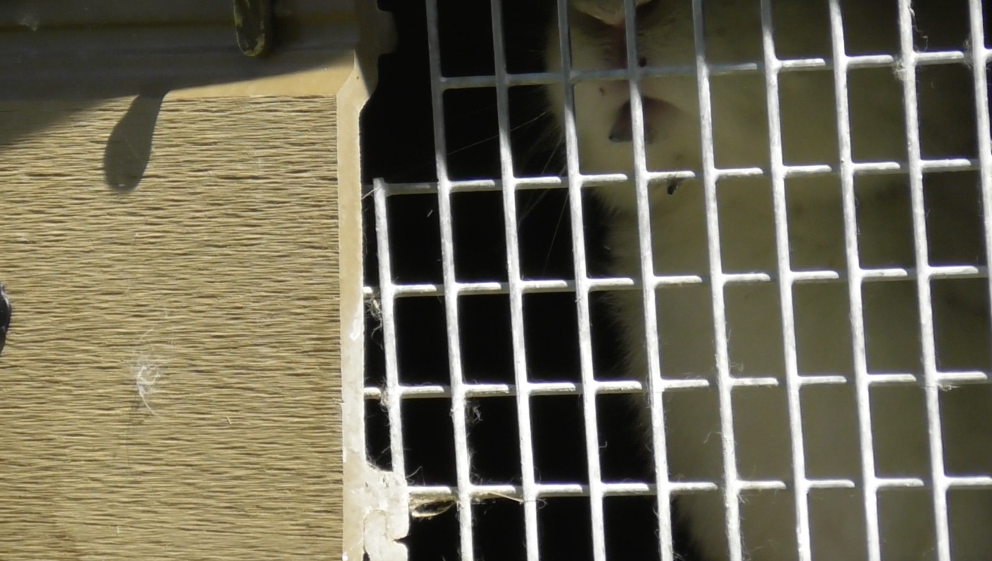Ban on the use of lead shot – finally!
Posted 10 Jul 2025

Posted on the 13th September 2021
Take a moment to object today! A rabbit meat and fur farm franchiser has put in another application to erect a rural worker’s dwelling and agricultural building, complete with ‘intake and skinning area’ (in other words, a rabbit slaughtering facility).

Update: This application was withdrawn.
The application, for a site in East Bridgford, Nottinghamshire, would appear to be almost identical to that for a similar site at Atlow, Derbyshire so many of the same points apply. Please see our original objection to the Atlow site here.
The deadline for objections was supposed to be the 18th September 2021– but objections are still accepted. Please take the time to register your objection with Rushcliffe Borough Council via this link:
https://planningon-line.rushcliffe.gov.uk/online-applications/applicationDetails.do?activeTab=makeComment&keyVal=QWZPYONLGF700
Planning reference number 21/02208/FUL
Alternatively, please email: planningandgrowth@rushcliffe.gov.uk
Please remember to include the planning application reference number 21/02208/FUL along with your full name and address in order for your submission to be valid. You can request that your personal details be kept anonymous and not published on the planning portal if you wish.
Local animal activists held a peaceful demonstration at the site on Sunday 12th September, what they report is horrifying – ‘rabbits forced to live with painful infections and injuries, in their own filth’ and ‘many with obvious mite infestations, in overcrowded pens with unstable hierarchies, causing bullying of the ill and weaker rabbits.’
The activists managed to leave with two rabbits who were surrendered, who they describe as ‘severely ill’. These two lucky rabbits are now receiving veterinary care, funded by well-wishers. The activists concerns have been reported to the relevant authorities who are investigating.
Previously, our investigators visited another of their established sites at Atlow/Hognaston, Derbyshire and found rabbits living in appalling conditions:
Unfortunately, animal welfare is not a consideration in the planning process. Whilst you may feel the most important factor to mention is animal welfare and suffering, this will not be considered by the authorities. You can of course mention your concerns, but your objection will have more bearing if you focus on a range of alternative points.
Foul odour and noise. Farming hundreds or even thousands of rabbits on such an intensive scale will undoubtedly produce a great amount of waste and ammonia, which apparently will not be removed, but left on the ground to rot leading to foul odours and flies.
Special protections
Disease management
Wildlife
Slaughter of rabbits and waste
There is no mention of how the rabbits shall be slaughtered or of how biological waste will be dealt with more widely.
Waste and pollution
How will all the waste be dealt with? This will all need to be collected, creating more vehicle movements. We question what will happen to the nitrate-rich waste run-off from the farm?
No obvious economic benefit to the area
The development would not bring obvious economic benefit to the local area and in real terms could actively reduce this. It looks like just one person will be employed to work at the farm.
Conflicting with Local Planning Policy
The proposed buildings contravene Local Plan Policy 22 – particularly points 6.13 and 6.22. Large unsightly farm and residential buildings are not in keeping with the surrounding area, which is largely undeveloped and on greenbelt land. These buildings would unduly impact upon the character and appearance of the countryside. Large unsightly ‘modern’ styled buildings are not in keeping with the surrounding area, which is largely undeveloped.
Public attitudes to rabbit meat and real fur
It is so important to lodge as many written objections as possible, so please take a moment to place an objection in your own words. Please help us and all those who are opposed to this scheme to stop further expansion of this dreadful business.
So please register your objection with Rushcliffe Borough Council via this link:
https://planningon-line.rushcliffe.gov.uk/online-applications/applicationDetails.do?activeTab=makeComment&keyVal=QWZPYONLGF700
Planning reference number 21/02208/FUL
Or email: planningandgrowth@rushcliffe.gov.uk
Please remember to include the planning application reference number 21/02208/FUL along with your full name and address in order for your submission to be valid. You can request that your personal details be kept anonymous and not published on the planning portal if you wish.
Posted 10 Jul 2025

Temperatures are rising and it’s time to get outdoors, enjoy the weather and tuck into some delicious vegan food! Thanks to an abundance of plant-based options now available, there’s an alfresco option for every tastebud...
Posted 09 Jul 2025
